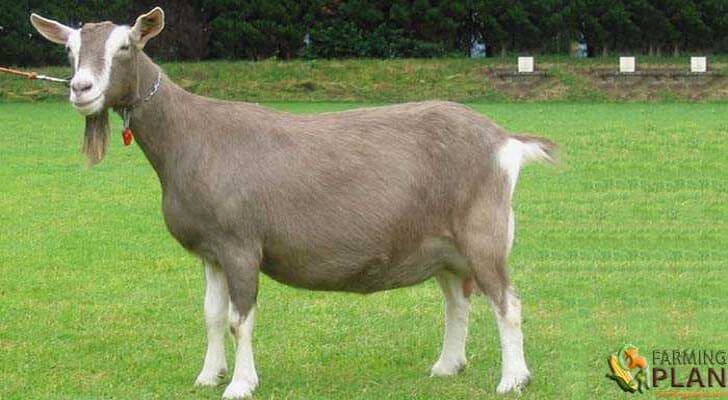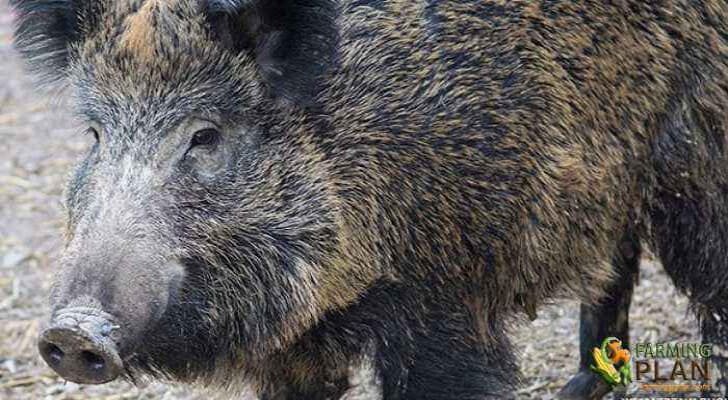In present day India, the Ankamali Pig is an easily forgotten breed of livestock. Native to Kerala, this black pig has been on a slow but sure path towards extinction for many years now and is sadly seldom heard or seen in its native habitat. In the past century, much agricultural innovation has led to industrial farming techniques that leave traditional breeds like these at a serious disadvantage for survival – but there are some who still endeavor to keep this age-old tradition alive. Here we explore the story of one fascinating breed of pigs that have been around since antiquity: The Ankamali Pigs – their unique characteristics, combined with a look at how they’ve managed to hang on over time despite all odds against them!

Introducing the Ankamali Pig – A Brief History
The Ankamali Pig, an indigenous black pig found in Kerala, India, has a bright history. Its initial purpose may have been to produce food for those living in less developed parts of the state, but more recently it has become a symbol of resilience and hardiness. These pigs are distinct from any other type of pig because of their size and color; however, due to factors like cross-breeding, habitat loss and deforestation, this once plentiful breed is now considered endangered. Despite its current endangered status, the Ankamali Pig remains an important part of Kerala’s culture and history.
Characteristics of Ankamali Pig
The Ankamali Pig, hailing from the state of Kerala in India, is a unique breed of heritage pig. They have predominantly black coats with white splotches, giving them the appearance of being covered in ink blots. This pig has thick and stout legs, which help it to traverse through thick undergrowth and over rocks alike. A distinguishing feature of Ankamali Pigs is their long snouts, which act as an effective tool for rooting out food. These hardy pigs can withstand both hot and cold weather without any problems making them a perfect barnyard companion in India’s tropical climate. Unfortunately, this once-popular breed of pig is now endangered due to a decrease in its natural habitat as well as other factors such as intensive farming practices.
Feed
Due to their low maintenance and easy accessibility, the Ankamali Pig is often found foraging for food in their natural habitats. However, this habitat is rapidly disappearing due to urbanization. As a result, these charming and hardy pigs are forced to rely on alternative sources of sustenance that are not always ideal. Specifically, they urgently need better quality food; the ones they can get now contain inadequate nutrition, causing weight loss and poor health. If protective measures are taken in order to boost their numbers, these unique creatures could thrive once again with proper feeding schedules.
Usage
India’s traditional Ankamali Pig is a remarkable breed of pigs, widely known for its black color and found only in the state of Kerala. Unfortunately, this indigenous Black Pig of Kerala is on the verge of becoming endangered due to lack of awareness amongst farmers and consumers about its usage. This pork-type meat has its own unique qualities, making it sought after by connoisseurs due to its exceptional taste and texture. Despite their high potential as a sustainable food source, these pigs are now critically underutilized. To prevent further depletion of the Ankamali pigs from our agricultural fields, policymakers must swiftly take initiatives towards promoting the use of this ethnic pig among farmers and providing clear incentives to consumers who opt for this animal-friendly alternative.
Benefits of Breeding Ankamali Pig
Breeding Ankamali Pig offers many beneficial features. These indigenous black pigs from Kerala are hardy and able to adapt to any environment due to their natural habitat ranging from dense forests and farm lands. Unlike other breeds, they require little care or expenditure of resources and have more tolerances against diseases such as swine fever and brucellosis. In addition, their efficient feed digestibility rate is between 70-80%, leading to faster growth and leaner meat with a strong flavour. Finally, Ankamali Pigs have good fertility which creates higher production of offspring which helps to support the conservation efforts in protecting this endangered ancestral breed.
How Kerala’s Climate and Geography Promote the Thriving of this Breed
Kerala’s unusually wet climate and lush vegetation promote the thriving of Ankamali Pig, indigenous to the region. The breed is highly adapted to this environment and enjoys rooting in the soft soil, finding abundant sources of food amongst the tropical trees. Furthermore, its thick skin coat helps it adapt to both extreme heat and rainfall of Kerala. As most farmers prefer animals that can feed off trees and shrubs, Ankamali Pig is increasingly in demand here. The special qualities of this black pig provide great nutritive value to local diets and rituals within Kerala. Favorably suited to its environment, this native breed gives a sense of pride and identity to Kerala-dwellers.
The Significance of Ankamali Pigs in India’s Rural Communities
Ankamali Pigs are an important part of India’s rural communities and their disappearance is greatly missed. This breed of pig, indigenous to Kerala in India, has been a staple in the diets of rural families for generations. On top of this, Ankamali Pigs have been used as working animals on farms, helping to till soil and planting crops. They also provide local farmers with a strong source of income through their meat and fat. Unfortunately, Ankamali Pigs are now seen as an endangered species which makes it all the more important to protect them and ensure they remain a part of Indian culture. Not only could they become extinct but many rural families would be deprived from a very valuable resource that helps sustain their livelihoods.
Challenges Facing the Breed, Including Threats to their Survival
Ankamali Pigs are a unique breed native to Kerala, India with ancient origins. Unfortunately, the breed is facing numerous challenges leading to a slow decline in their numbers and an increased risk of the species going extinct. The primary threat to the Ankamali Pig is deforestation in their natural habitats which has caused a loss of suitable food sources and made them vulnerable to predators. In addition, they are being replaced by alternative breeds including crossbreeds that produce higher yields at slaughter. The changing climate has also affected the feasibility of raising them in certain areas due to water shortages and extreme temperatures, making conservation efforts more difficult as fewer farmers choose to invest in this challenging breed. It is up to viable conservation plans and a renewed interest among farmers if we wish to ensure that the heritage of this once beloved breed carries on into future generations.
Steps Taken to Secure and Preserve This Endangered Breed
The Ankamali Pig, an indigenous black breed of pig found in Kerala, India, is sadly now considered to be endangered. This unique breed of pig has many ecological and economic advantages and preserving it is of utmost importance. To secure this majestic breed, various steps have been taken by the local government and farming communities in Kerala. Ideas such as helping farmers incentivize their decisions to raise Ankamali Pigs including enabling policy changes that provide better facilities for these pigs, as well as conducting online campaigns to increase awareness about the endangered status of the breed have become widespread goals among stakeholders. It is hoped that these steps can protect both the pigs and those depending on them for their livelihoods.
What You Can Do To Help Protect and Save the Ankamali Pig
If you are passionate about protecting the Ankamali Pig, there are many things you can do. You can spread awareness by talking to local organizations and posting on social media, and encourage people to purchase only certified organic food from trusted sources. You can also offer your support for conservation efforts that focus on the survival of this species, such as habitat protection, lobbying for legislation, and implementing responsible breeding practices or other community-led initiatives. Finally, if you own land with potential for pig farming, consider dedicating the space exclusively for raising Ankamali Pigs or other endangered breeds. By taking these steps and more, you can join the fight to protect this unique and valuable species of indigenous pigs in India.
FAQ
What is indigenous pig breed?
Indigenous pig breeds are those that originate locally and have been raised in the same area for generations. These breeds have adapted to their local environment and climate, making them well-suited to thrive under those conditions. The most common indigenous pig breeds include Ossabaw Island Pigs from Georgia, Mulefoots from Missouri, Pineywoods Hogs from the South Atlantic Coastal Plain, Red Wattle Hogs from Texas, Large Blacks from Britain, Guinea Hogs from the American Southeast coast, British Lops from England and Wales, Hereford Pigs of South West England and Yorkshire pigs of northern England.
What are the native pig breeds of India?
India’s native pig breeds are some of the oldest and most iconic in the world, having been developed over thousands of years to adapt to their local environment. The four major indigenous breeds are Sulawesi, Jangali Bandel, Wild Boar and High Altitude Hill Pig.
Which pig breeds are found in Kerala?
Kerala, the southern state of India, is well known for its diverse range of pig breeds. These pig breeds have adapted to the warm and humid climate of the region and have been reared in these areas since ancient times.
Conclusion
The preservation of the Ankamali Pig is of paramount importance to Kerala and its local people, as well as to India at large. This breed of pig has helped sustain livelihoods in the state through multiple generations, and represents an integral part of the culture and history. Conservation efforts are thus crucial for safeguarding their future. While progress is being made in this direction with increased awareness and involvement from locals, there is still much work to be done. Everyone can help by supporting conservation projects that specifically target the Ankamali Pig, and also by voting for environmental friendly politicians who support conservation strategies for this vibrant species. Each one’s small contribution can add up towards making a positive difference – let us do what we can to protect this rare breed before it runs out of time!


